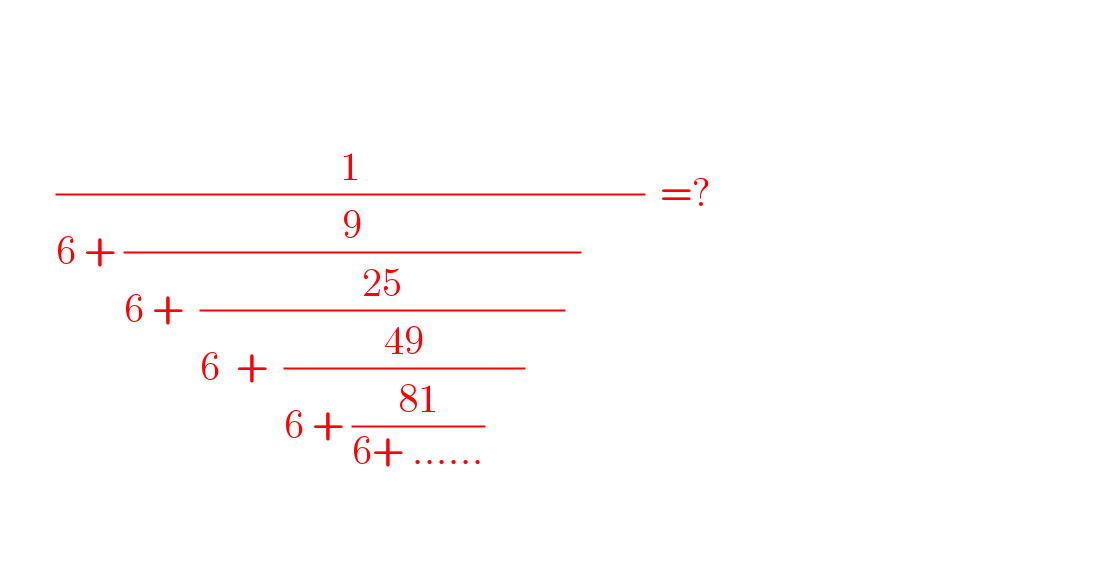
Question Number 184775 by SEKRET last updated on 11/Jan/23

$$\:\:\:\: \\ $$$$\:\:\:\:\: \\ $$$$ \\ $$$$\:\:\:\:\:\:\:\frac{\mathrm{1}}{\mathrm{6}\:+\:\frac{\mathrm{9}}{\mathrm{6}\:+\:\:\frac{\mathrm{25}}{\mathrm{6}\:\:+\:\:\frac{\mathrm{49}}{\mathrm{6}\:+\:\frac{\mathrm{81}}{\mathrm{6}+\:......}\:\:\:\:\:}\:\:\:\:\:}\:\:}\:\:\:\:\:\:\:\:}\:\:=? \\ $$$$ \\ $$$$ \\ $$
Commented by Frix last updated on 11/Jan/23

$$\pi−\mathrm{3}? \\ $$
Commented by SEKRET last updated on 13/Jan/23

$$\boldsymbol{\mathrm{yes}}\:\:\boldsymbol{\mathrm{sir}}.\boldsymbol{\mathrm{provet}}\:\boldsymbol{\mathrm{that}} \\ $$$$ \\ $$
Answered by aba last updated on 11/Jan/23

$$\pi=\mathrm{3}+\frac{\mathrm{1}}{\mathrm{6}+\frac{\mathrm{3}^{\mathrm{2}} }{\mathrm{6}+\frac{\mathrm{5}^{\mathrm{2}} }{\mathrm{6}+\frac{\mathrm{7}^{\mathrm{2}} }{\ddots_{\infty} }}}}\:\Rightarrow\:\frac{\mathrm{1}}{\mathrm{6}+\frac{\mathrm{3}^{\mathrm{2}} }{\mathrm{6}+\frac{\mathrm{5}^{\mathrm{2}} }{\mathrm{6}+\frac{\mathrm{7}^{\mathrm{2}} }{\ddots_{\infty} }}}}=\pi−\mathrm{3} \\ $$
Commented by SEKRET last updated on 12/Jan/23

$$\boldsymbol{\mathrm{thank}}\:\boldsymbol{\mathrm{you}}\:\boldsymbol{\mathrm{sir}}. \\ $$$$\boldsymbol{\mathrm{provet}}\:\boldsymbol{\mathrm{that}} \\ $$
